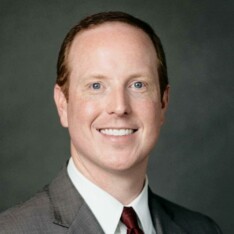America is in the midst of an identity crisis, and it’s probably not the kind you’d think. Our nation is wrecked by an abysmal economy and unhappy people losing confidence in their country. In such unhappiness, people on both sides of the political aisle too often propose “solutions” that grant the government more control of our lives, even though that control is usually the source of the problem.
The American experiment has paved the way for millions to escape poverty and build a better life via a free-market system with a constitutional republic that encourages innovation and results in more human flourishing than ever before. We need to get back to those roots.
I had the opportunity to discuss this phenomenon with Dr. Samuel Gregg, author of the book The Next American Economy and distinguished fellow at the American Institute for Economic Research, who said this country’s founding values are based on “liberty and personal responsibility.”
What set America apart was a vision for commoners to determine their own future, and we continue to rank as the most entrepreneurial country in the world. American’s earliest ideals demanded liberty and responsibility, rejecting directives from a distant King. As a result, the roles of the federal and state governments were carefully managed by a system of federalism, with checks and balances to restrain overreach and protect liberty. According to Gregg, this ongoing experiment is why immigrants are continually inspired to leave their homes and venture to the United States.
These core tenants of America have become less defined over the past century. America has increasingly chosen big government over individual liberties, thereby reducing the benefits of free-market capitalism.
The major expansions of government started in the progressive era, with Presidents Teddy Roosevelt, Woodrow Wilson, and Herbert Hoover. Those historic expansions were put on steroids by President Franklin D. Roosevelt’s “New Deal,” which prolonged and deepened the Great Depression. Likewise, President Lyndon B. Johnson’s “Great Society” program ballooned government through the creation Medicare and Medicaid, among others. The results have been massive government spending with increased dependency on government programs.
President George W. Bush’s expansion of Medicare with Part D provided some prescription drug coverage for seniors, with questionable results, at a massive cost. President Barack Obama’s Obamacare expanded government control, contributing to the high cost and declining quality of US healthcare. President Trump’s attempt to punish China with tariffs actually punished low-income Americans most. Most recently, President Biden’s 2022 “Inflation Reduction Act” further grows government, without reducing inflation and at a huge cost to taxpayers.
Inflating the role of government in an attempt to solve underlying issues created by big government created a vicious cycle that continues today. Government meddling distorts the economy by blocking and confusing free people’s choices. This results from a cultural shift, where Americans increasingly seem to believe government can solve problems better than markets or individuals.
This belief is contradicted by the evidence. The lack of belief in free markets is really the lack of believe in free people, as the market is nothing but people. Big government is usually the cause of economic and social problems, so trying to solve them with more government just exacerbates the issues. A severe deficit in the knowledge of history, both of culture and economics, helps explain why post-modern socialist solutions increasingly entrance younger generations.
Unlike older countries, America’s identity comes from the “texts, documents, and debates” that created our founding, says Gregg. Surveys show that only 1 in 3 Americans can pass a citizenship test, because most of them aren’t familiar with the foundational ideas outlined in our texts and documents. A national identity crisis is near-inevitable, when we forget our core values of liberty and personal responsibility
The further we stray from the principles that made our nation great (including free-market capitalism, a constitutional republic, and personal responsibility) the more swiftly we head down what economist Friedrich Hayek called “the road to serfdom.”
Only by learning our unique history, and grasping the principles of free-market economics free from burdensome interference, can Americans embark on the next American economy.





































